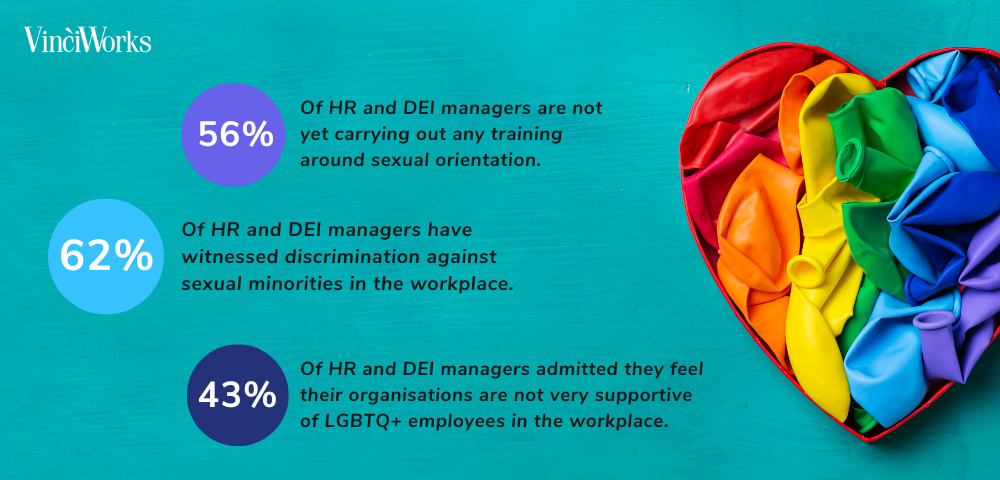Our recent survey has found that over half (56%) of HR and DEI managers are not yet carrying out any training around sexual orientation within their organisations. Furthermore, 62% of HR and DEI managers have witnessed discrimination against sexual minorities in the workplace.
Almost a quarter of those surveyed (23%) revealed they had witnessed this type of discrimination several times, while only one-third (33%) had not seen any discrimination against LGBTQ+ employees.
Only a quarter (25%) of HR and DEI managers plan to roll out sexual orientation training to their employees to combat discrimination in the workplace in the near future, but barely a fifth (22%) of those questioned are undertaking the recommended training every year.
While over half (57%) of HR and DEI managers think their organisations provide a significant amount of support to LGBTQ+ employees in their workplace, 43% of those surveyed admitted they feel their organisations are not very supportive. This highlights the substantial amount of work that still needs to be done to make sexual minorities feel comfortable in the workplace.
“Organisations must recognise the importance of supporting LGBTQ+ employees to feel comfortable in the workplace, which means educating the whole workforce about the challenges that sexual minority employees face. Regular training on sexual orientation also supports staff to know how to speak to colleagues and clients with more sensitivity, more understanding, and also challenge those potentially biassed. People should be able to bring their whole selves to work, and that includes LGBTQ+ people,” commented Nick Henderson-Mayo, Head of D&I at VinciWorks.
“Having more comprehensive training sessions that are shared with all employees allows sexual minority employees to see that their organisation cares about them and creates a culture of respect for LGBTQ+ employees that helps brands build strong, inclusive reputations.”
To support HR and DEI managers in tackling discrimination against sexual minorities in the workplace, VinciWorks has launched its latest film-based training on Sexual Orientation and is offering a free trial of the course.















